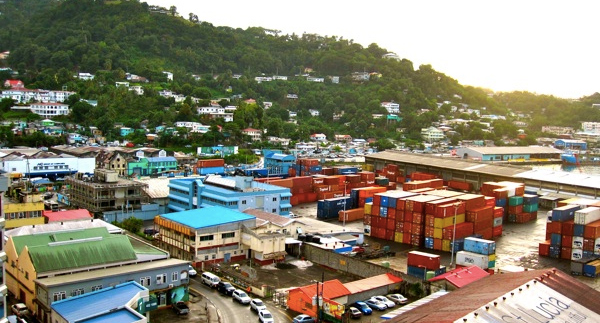By Kenton Chance KINGSTOWN, St. Vincent, Nov 19, CMC — The International Monetary Fund (IMF) says it is monitoring the potential impact any changes to PetroCaribe, Venezuela’s oil alliance with several Caribbean islands will have on regional economies.
Analysts say the initiative, which allows countries to pay for part of their oil import from Caracas over a 20-year period at low interest rates, will have to be modified or discontinued amidst a worsening economic situation in the South American country..
Several Caribbean Community (CARICOM) countries including Antigua and Barbuda, The Bahamas, Jamaica, Belize, St. Kitts and Nevis, Grenada, St. Vincent and the Grenadines (SVG), Guyana, and Suriname are members of PetroCaribe.
St. Vincent and the Grenadines Prime Minister Dr. Ralph Gonsalves said that Caracas has invited PetroCaribe member countries to a meeting on Thursday about “reaffirmation” of the commitment to the initiative, the brainchild of the former Venezuelan President, the late Hugo Chavez.
Gonsalves said that the notification regarding Thursday’s meeting said the talks were about “reaffirming the commitment to PetroCaribe and to give that reaffirmation, and, secondly, to look at ways and means where we can deepen the integration process within the framework of PetroCaribe.”
IMF advisor, Western Hemisphere, Elie Canetti, told reporters that the IMF’s main concern “is that we know Venezuela is going through increasing financial stress, and oil prices have dropped from around US120 dollars a barrel to mid 70s a barrel and Venezuela is hugely dependent on selling oils.
“So, we are mindful and concerned about the feasibility of PetroCaribe continuing, certainly at the level it has been, and we are looking into what will be the impact on Caribbean countries,” Cantelli said.
He said the IMF has been monitoring the situation for quite some time, “but the urgency in trying to understand that is much higher now because of the financial situation in Venezuela does seem to be deteriorating much more quickly now with the drop in oil prices”.
Cantelli, however, said that the developments werenot really an issue for St. Vincent and the Grenadines as far as energy is concerned, since the state-owned power company, VINLEC, has alternative sources of supply and the IMF has been “assured that should the oil under the PetroCaribe arrangement stop flowing that would not adversely affect energy supplies here”.
But Cantelli noted the advantageous financing terms that PetroCaribe offers its members.
“So if PetroCaribe is, in the extreme, wound down, or if PetroCaribe financing benefits become less generous, it is something that will have to be taken in account in the fiscal strategy,” he said, adding that the Washington-based financial institution is trying to understand what exactly PetroCaribe money was used to pay for in St. Vincent and the Grenadines.
“We’ve heard that there are things that have essentially been paid for by the PetroCaribe financing and those are things where the financing can be paid off gradually at concessionary terms.
“So there will have to be some thinking if that concessionary financing is lost, how to replace that financing for the various things that PetroCaribe has financed. But I don't see it, at least in St. Vincent and the Grenadines, as something that will require urgent adjustment to. It will require some thinking about how to replace that loss of concessional financing,” he said.
Cantelli, however, said that notwithstanding the implications for PetroCaribe, lower oil prices are actually good for the local economy and that a reduction in energy cost will be passed directly to consumers and should put more purchasing power in the hands of households and business, leading to greater demand in the economy.
The IMF official said if the declining price of oil is sustained, that should substantially lower the cost of air travel, which will be good for the Vincentian economy, which is heavily dependent on tourism.
Meanwhile, Prime Minister Gonsalves has spoken of the other dimensions of PetroCaribe, such as the provision to pay for soil through the exchange of goods and services, something he said St. Vincent and the Grenadines has not taken advantage of because of “the transportation issue”.
“But I am sure that all of those questions will be discussed on Thursday, and when I return, I will report as to whether there are any changes in the arrangement. But from the notification that I received, there is no indication that we are going to have any changes; just a reaffirmation,” said Gonsalves, who also has ministerial responsibilities for energy matters.
“People must appreciate that this is an extremely generous arrangement: two per cent monies for 20 years on every shipment. You don't get it much better than that…”
St. Vincent and the Grenadines is hoping to have a 10-megawatt geothermal power plant on stream by early 2018 and Gonsalves said when this happens the island will reduce “our importation of fuel from any source whatsoever and will make the savings.
“So, we have a plan in going forward in how you address things within the interest of a sustainable energy source,” Gonsalves said.
During his radio programme earlier this week, Opposition Leader Arnhim Eustace, who has been opposed to PetroCaribe from the inception, said he was especially concerned about the implications of the “tightening” economic situation in Venezuela.
He said Venezuela’s oil production has not increased since 2005, and Caracas stands to get even less money as the price of oil continues falls.
“So they can’t be generous in terms of any loans the government gets from PetroCaribe, and in any case, they can’t get the same level of loans,” Eustace said, adding that with the current oil prices, member of PetroCaribe will be able to keep less of their payment for oil as a loan.






